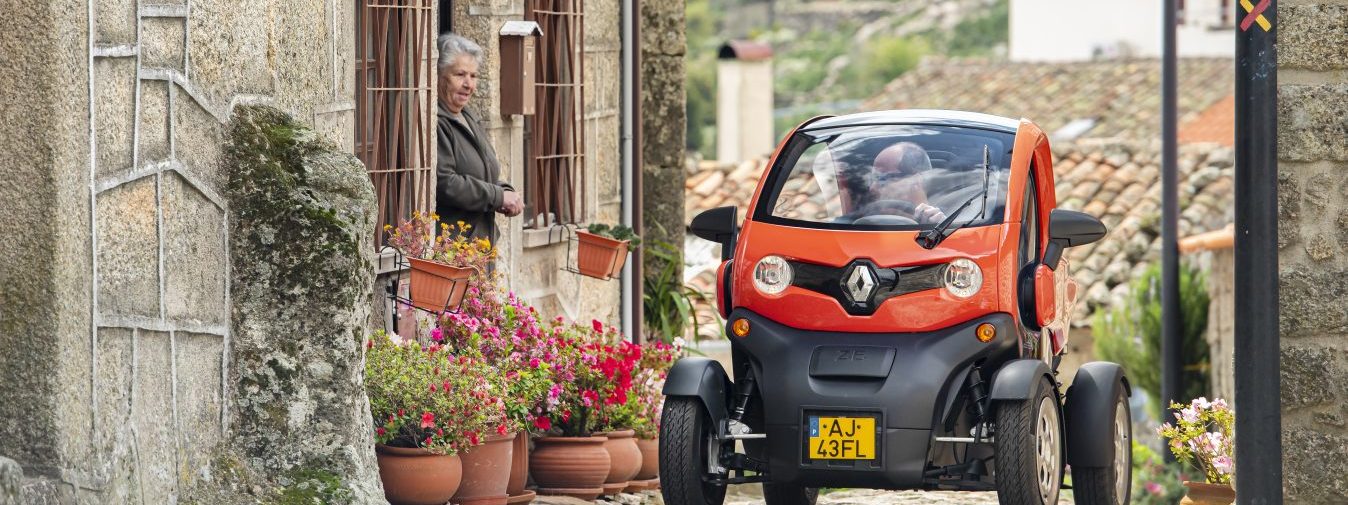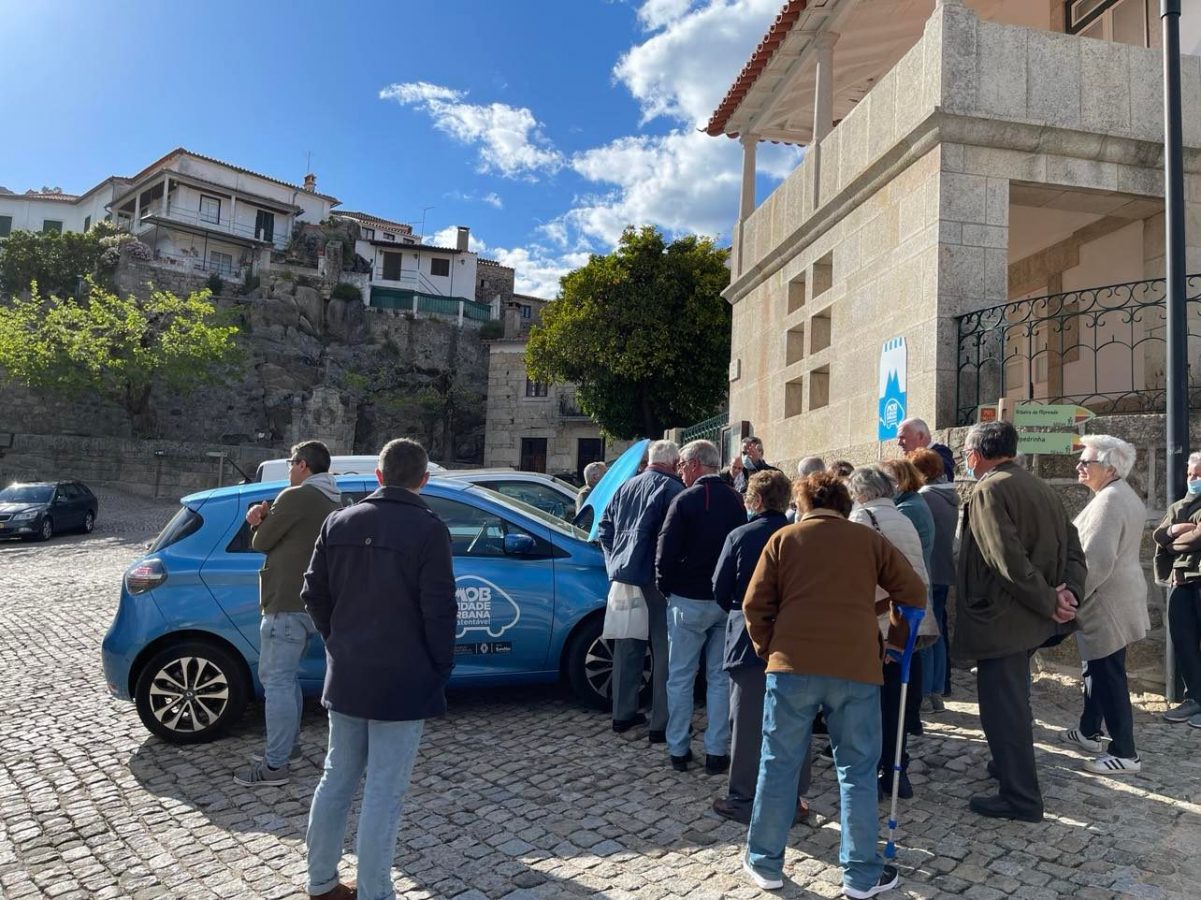
Inclusive and Sustainable Urban Mobility
Historical Villages of Portugal
The “Inclusive and Sustainable Urban Mobility” Project is a plan which is integrated in the Course of Action “Enhanced Mobility” that embodies the Common Strategic Framework designed for the Network of Historical Villages of Portugal.
It is a pilot project rooted in the creation of a new sustainable mobility service directed towards companies, residents, and visitors, resulting from the partnership between the Historical Villages of Portugal – Tourist Development Association and Renault Portugal, with the support of the County of Fundão.
It is an impact partnership that through social and environmental responsibility, focusses on the principle of Regional Development in the less densely populated areas, which have strong touristic potential but lack solutions that would allow the different users, systematic mobility. This project, together with the aim of achieving sustainable transport, intends to place the users first, offering them cheaper, more accessible, healthier and cleaner travel alternatives.
In addition to the associated environmental dimension, the social aspect is greatly valued in this project, which in turn has a positive impact on the local economy, since a fleet of five electric Renault cars, a free pioneer service of sustainable mobility, are available to tourists, residents and professionals.
The Historical Village of Castelo Novo was the chosen village and is therefore the first place in Mainland Portugal with 100% sustainable mobility – free from CO2 emissions and noise! – but it also guarantees that the trips between the 12 Historical Villages of Portugal are more environmentally friendly. Boosting multimodal transportation is another commitment of the Historical Villages of Portugal -Tourist Development Association in the field of sustainability. Thus, the project also includes a shuttle service connected to the train stations of Castelo Novo, Alpedrinha and Fundão.
Taking into consideration the profile of the different users, a booking system was created that offers both face-to-face and online customer service, assisted by regulation that defines the rules of use.
The realization of this project is the solution for tourists and all those people who do not own their own vehicle, or who are looking for a more economical and sustainable way to travel, including the residents and professionals of the area.
As a pilot project, there is a trial period of 6 months, which started on 12/04/2022. As a result of the performance obtained, the same may be replicated in the remaining 11 Historical Villages of Portugal, thus reinforcing the field of sustainability as a major premise for the development of the Network.
This project contributes to the strengthening of the smooth mobility of the Network of the Historical Villages of Portugal.
Project Monitoring
Monitoring is crucial for assessing the project's contribution to the evolution of the Historical Village as a sustainable ecosystem.
To that effect, the following points were carefully analysed:
- The No. of residents that use the vehicles compared to the total No. of inhabitants (means of measurement: booking system);
- The No. of companies that use the vehicles compared to the total No. of companies located in the Village (means of measurement: booking system);
- The No. of visitors that use the vehicles by nationality (means of measurement: booking system);
- The No. of kms by type of user (km management sheet);
- Cost/Energy consumption and the environmental impact (information to be collected from the City Hall);
- No. of package tours created that include sustainable mobility (Booking System of the Historical Villages of Portugal)
- No. of commercialized package tours that include sustainable mobility (Booking System of the Historical Villages of Portugal)
- Revenue generated from package tours (Booking System of the Historical Villages of Portugal)
- Rate of repeated use of electric vehicles
- Rate of new users (residents) of electric vehicles
Monitoring is done monthly. The statistical data collected should show the evolution of the use of the fleet of vehicles by different types of users and, whenever possible, establish a parallel between the consumption of fossil fuels and the consumption of electric energy versus promoted impact, using the number of km registered monthly for each electric vehicle.
In the network of Historical Villages of Portugal, sustainability is making History.




